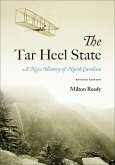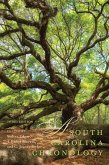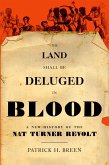The first comprehensive five-century chronicle of the South Carolina African American experience
Yes, Lord, I Know the Road is the first comprehensive history of African Americans in the Palmetto State. From the first North American slave rebellion near the mouth of the Pee Dee River in the early sixteenth century to the 2008 state Democratic primary victory of Barack Obama, award-winning historian J. Brent Morris examines the unique struggles and triumphs of African Americans in South Carolina.
Following an engaging introduction, Morris brings together a wide variety of annotated primary-source documents-personal narratives, government reports, statutes, newspaper articles, and speeches-to highlight the significant people, events, social and political movements, and ideas that have shaped black life in South Carolina and beyond. In their own words, anonymous and notable African Americans, such as Charlotte Forten, David Walker, and Jesse Jackson, describe the social and economic subjugation caused by more than three hundred years of slavery, the revolution wrought by the American Civil War and Reconstruction, and the post-Reconstruction civil rights struggle that runs to the present.
Many of these source documents are previously unpublished; others have been long out of print. Morris proposes that reading the narrative-sources black Carolinians left behind brings life and relevancy to the past that will spark new public conversations, inspire fresh questions, and encourage historians to pursue innovative scholarly work.
Yes, Lord, I Know the Road is the first comprehensive history of African Americans in the Palmetto State. From the first North American slave rebellion near the mouth of the Pee Dee River in the early sixteenth century to the 2008 state Democratic primary victory of Barack Obama, award-winning historian J. Brent Morris examines the unique struggles and triumphs of African Americans in South Carolina.
Following an engaging introduction, Morris brings together a wide variety of annotated primary-source documents-personal narratives, government reports, statutes, newspaper articles, and speeches-to highlight the significant people, events, social and political movements, and ideas that have shaped black life in South Carolina and beyond. In their own words, anonymous and notable African Americans, such as Charlotte Forten, David Walker, and Jesse Jackson, describe the social and economic subjugation caused by more than three hundred years of slavery, the revolution wrought by the American Civil War and Reconstruction, and the post-Reconstruction civil rights struggle that runs to the present.
Many of these source documents are previously unpublished; others have been long out of print. Morris proposes that reading the narrative-sources black Carolinians left behind brings life and relevancy to the past that will spark new public conversations, inspire fresh questions, and encourage historians to pursue innovative scholarly work.
Dieser Download kann aus rechtlichen Gründen nur mit Rechnungsadresse in A, D ausgeliefert werden.









